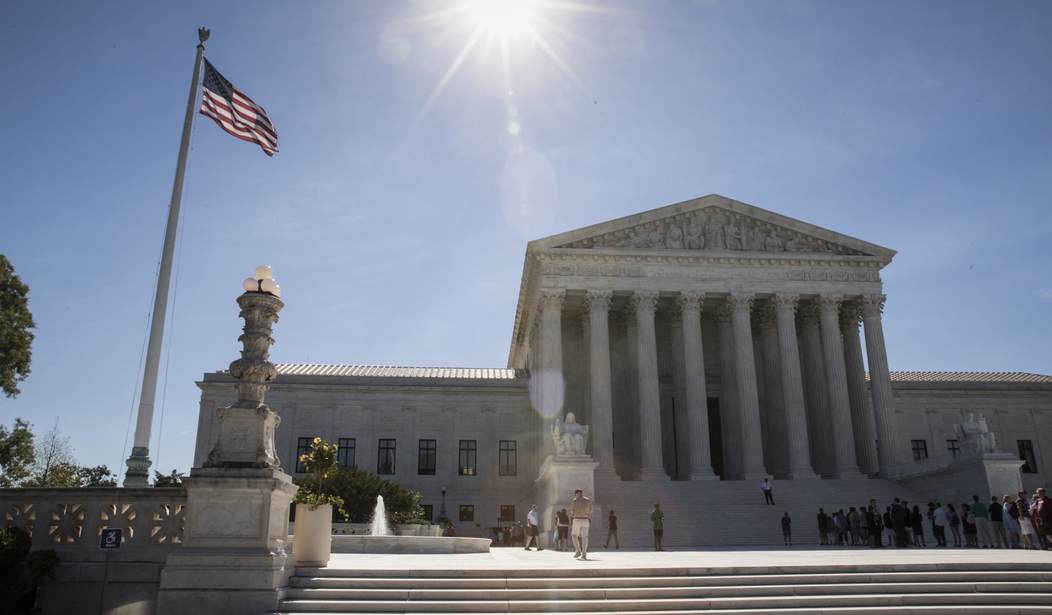In arguments before the Supreme Court on Wednesday, attorney Neal Katyal attacked President Donald Trump’s refugee proclamation — oft maligned as a “Muslim ban” — by quoting the U.S. Council of Catholic Bishops (USCCB), which called the order “blatant religious discrimination.”
Trump’s proclamation, currently before the Court, “has both the purpose and the effect of discriminating against Muslims,” the bishops argued in their friend-of-the-court brief, filed March 30. “Prior to issuing the Proclamation, the President repeatedly announced his desire to target Muslims for denial of entry into the United States…. Such blatant religious discrimination is repugnant to the Catholic faith, core American values, and the United States Constitution.”
Katyal quoted the bishops in response to Supreme Court Justice Samuel Alito, who pressed the attorney for evidence that a “reasonable person” would view Trump’s order as discriminating against Muslims.
“This is a ban that really does fall almost exclusively on Muslims,” Katyal said, Commonweal magazine reported. “Look at the wide variety of amicus briefs filed in this case from every corner of society, representing millions and millions of people, from the U.S. Conference of Catholic Bishops, which calls it, quote, ‘blatant religious discrimination’…”
Quoting the USCCB proved a shrewd tactical maneuver on Katyal’s part, since five of the nine Supreme Court justices are Roman Catholic, and one — Neil Gorsuch — was raised Catholic but left Catholicism for the Episcopal Church.
Despite this argument, CNN’s Joan Biskupic predicted that the Supreme Court would rule with President Trump. In December, the justices allowed the travel ban to take effect by a 7-2 vote, with only Justices Ruth Bader Ginsburg and Sonia Sotomayor dissenting.
The travel ban under consideration is the third iteration of an executive order attempting to put a “pause” on refugees and immigrants from countries of terror concern which happen to be mostly Muslim. The original ban focused on seven countries: Iran, Iraq, Libya, Somalia, Sudan, Syria, and Yemen. After protracted legal battles, the current ban does not include Iraq or Sudan, but does include North Korea and Venezuela, which are not Muslim-majority countries.
While Trump did make inflammatory comments calling for a “shutdown of all Muslims entering the country” during the 2016 campaign, no version of the executive order encompassed even a quarter of the majority-Muslim countries in the world.
“This is not a so-called Muslim ban,” Solicitor General Noel Francisco declared on Wednesday. “If it were, it would be the most ineffective Muslim ban that one could possibly imagine since not only does it exclude the vast majority of the Muslim world, it also omits three Muslim-majority countries that were covered by past orders, including Iraq, Chad, and Sudan.”
Trump’s campaign remarks on immigration and his executive orders regarding the issue have drawn sharp criticism from Christians, Roman Catholic and evangelical Protestant alike.
During the campaign, Pope Francis attacked Trump as “not Christian,” citing the candidate’s desire to build a wall on the U.S.-Mexico border. In December 2016, Catholic bishops insisted that they saw “the Holy Family” in the struggles of immigrants and refugees. Last February, the USCCB welcomed the original blocking of Trump’s travel ban. At the same time, more than three thousand evangelical Protestant leaders — including prominent names like Tim Keller and Max Lucado — expressed “deep concern” over the order. In September, they declared the cancellation of DACA (Deferred Action for Childhood Arrives) “reprehensible.”
Contrary to the bishops and evangelical leaders, Christians can in good conscience support Trump’s travel ban, as it is a national security measure aimed primarily at terror threats, not Muslims as a whole.
The Supreme Court is expected to rule on the matter in about two months.









Join the conversation as a VIP Member